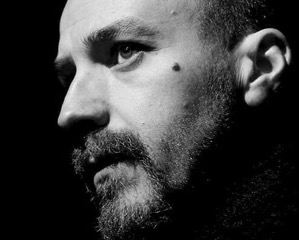Despite the limitations of COVID-19, the CHS continues to recognize and support artists in all media whose work engages with ancient Greek culture. Over the next six months, the CHS will share profiles of the 2020-2021 cohort of CHS visiting artists.

Matteo Tarasco is a theatre director who has extensively engaged with ancient Greece in his career. Among the most innovative and significant contributions is his investigation of myth from the female perspective. Most recently he conceived and directed “Penelope” (2019), which was chosen to represent Italy in the contest “Focus on the Italian Theatre” organized by Mibact and the Italian Institute of Culture and previewed at the Amalia Theater in Thessaloniki as well as in Athens. Among other works he conceived and directed are “Elektrae” (2019), “Troiane” (2017), “Medee” (2017), and “Baccanti” (2016). In 2016 he also brought on stage three classics of epic poetry revisited in a modern key. Conceived as a Female Trilogy of myth, it included a new interpretation of the “Aeneid”, the “Iliad”, and of the “Odyssey”. His professional achievements go beyond Italy; he is the only Italian director nominated as a Member of the Lincoln Center Theater Directors Lab (New York City), where he worked in 2006 and 2007. From 2007 to 2009 he was Guest Director at LAMDA – London Academy of Music and Drama Art. Tarasco graduated from D.A.M.S – Drama, Arts and Music Studies – University of Bologna, where he worked as a lecturer from 1999 to 2004.
As a CHS Visiting Artist, Tarasco has been engaging in a collaborative project with CHS Fellow and anthropologist Manuela Pellegrino, bringing together his expertise in theatre direction with her longstanding ethnographic research on Griko, a language of Greek origins used in Apulia, Southern Italy. The project stems from two “modern fairy-tales” written in Griko by Pellegrino – who builds on those collected at the end of the 19th century and purposely recovers the grammatical and performative specificities of Griko story-telling. In so doing, she continues to investigate the performative potential of this language in dealing with current concerns, and the potential impact of performance in Griko on language use and transmission. Initially conceived to be put on stage as I Rosalìa ce i fonì ti’ tàlassa (“Rosalia and the voice of the sea”) and I Rosalìa ce to gramma atto fengàri (“Rosalia and the letter from the moon”), they have now turned into two “work in progress” videoclips directed by Matteo Tarasco and shot by D.A.M.S. student Leonardo De Giorgi to be presented at the CHS Visiting Artist Series 2020-21.
To read more about Matteo Tarasco’s work, please visit:
- In English: https://www.typologos.com/penelope-by-matteo-carasco-with-teresa-timpano-at-the-theater-amalia/
- In Modern Greek:
http://www.theatro-technis.gr/sezon-2019-2020/
https://www.artandlife.gr/athens/events/penelope_pinelopi_toy_matteo_tarasco
- In Italian: https://iicatene.esteri.it/iic_atene/it/gli_eventi/calendario/2019/10/italian-focus-2019-ad-atene.html
